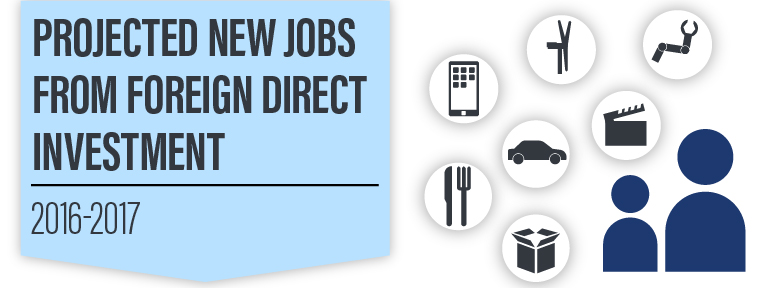Before Brexit was decided upon, numerous commentators, experts and financial professionals expressed their concerns on what a calamitous decision ‘Brexit’ would be for the country. One of the reoccurring worries among these individuals was the impact uncertainty from the vote would have on the future of foreign investors and multinational businesses when looking to invest in the UK.
As it so happened, on 23rd June 2016, 52% of UK’s electorate voted to leave the European Union compared to the 48% wanting to remain. A shock result. Before getting into the true consequences Brexit has had on foreign investment a year on, here at turnerlittle.com, we decided to assess why foreign direct investment (FDI) is so vital to a country’s economic prospects.
The Importance of Foreign Direct Investment (FDI)
FDI can be significant towards any country’s growth. Its primary benefits include the creation of new jobs as well as notable increases in tax revenues. Additionally, FDI is also a great facilitator of knowledge transfer – especially towards improving business infrastructure, processes and technologies. Overall such positive outcomes from FDI can surge a country’s productivity and competitiveness on a global scale and set up valuable long-term ties between different countries.

Photo credit: Number1411/Shutterstock
FDI and UK’s Job Market
Turner Little sought to find out how many new jobs had been directly created as a result of FDI for various sectors of business in the UK. We analysed the latest data from Gov.uk to reveal the following:
Overall, foreign direct investments made in the financial year of 2016-17 are projected to create 75,225 new jobs within three years. FDI projects in business and consumer services are set to create the highest number of new jobs at 13,603 – the equivalent of 262 new jobs per week. Thereafter, FDI projects in software and computers are expected to create the second highest number of jobs at 10,971. The third highest number of new jobs from FDI projects will be created in the financial services sector at 8,847.
On the other end of the scale, FDI projects in the extraction industries will create the least number of new jobs (642) – the equivalent of just 12 jobs per week. Only slightly higher with more new jobs (787) predicted from FDI projects made in 2016-2017, was the chemicals and agriculture sector.

The Effect of Brexit on FDI
According to a report released by one of the big four accounting firms EY at the start of 2017, Brexit had decreased the UK’s attractiveness for foreign investors by 34%. The report which consulted 254 senior business executives from investment companies around the world with investments in Europe, found that the ‘impact of Brexit’ ranked as the third highest factor which would have an impact towards their next investment decision in Europe. Although, other research from EY surveying 505 international decision-makers, did find the UK reigning supreme as one of the most desirable destinations for foreign businesses to invest in new projects over the course of the year.
The findings from the latter of EY’s reports were supported by figures released from the Organisation for Economic Co-operation and Development (OECD). The OECD showed that UK FDI inflows had soared to £197 billion in 2016; an increase of 20% from the previous year (2015 – £164 billion) and signified the highest level of recorded inflows since 2005. In fact, even in a post-Brexit United Kingdom, it has still managed to attract big investments.
Just a month (July 2016) after the EU referendum, pharmaceutical juggernauts GlaxoSmithKline stated they were investing £275 million in three of its manufacturing sites in the UK. Three months (September 2016) on from the EU referendum, Apple announced their intention to create new headquarters at London’s Battersea Power Station. Even in 2017, large scale investments showed no alarming signs of stagnating, such as Boeing who confirmed their plans to invest £20million in their first UK manufacturing plant in Sheffield (February 2017). More recently, Rolls-Royce announced a huge £150 million investment in UK aerospace facilities. All these ‘investments’ affirming the UK’s ability to continually attract FDI, even in the backdrop of a challenging Brexit environment.
As it stands, EU countries currently account for 45% of the FDI stock in the UK (£431 billion out of a total of £950 billion), compared with 27% for the USA and 28% from all other countries.

Photo credit: rawpixel.com/Shutterstock


